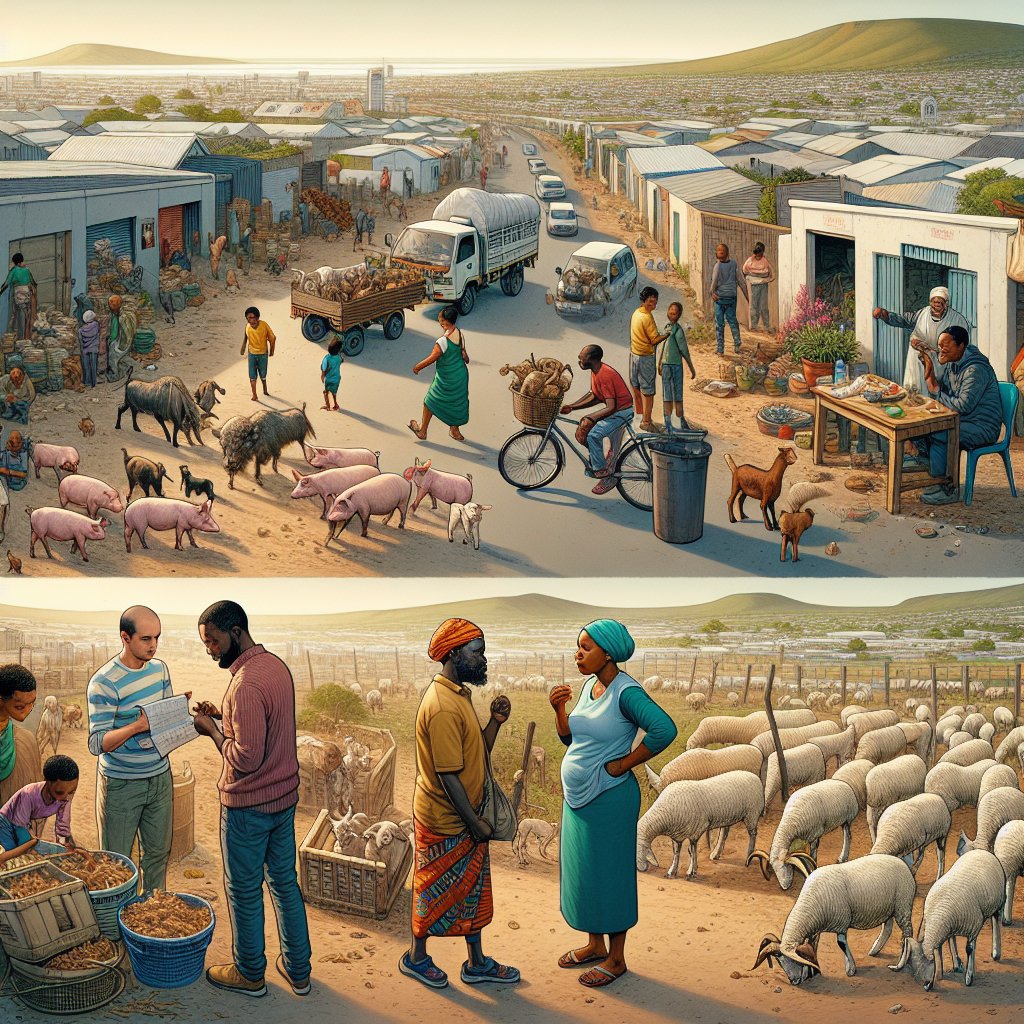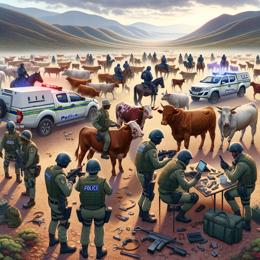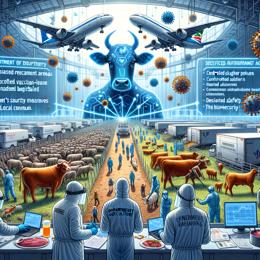Image: AI generated for illustration purposes
Township Farmers in Cape Town Battle Persistent Stock Theft
Deep within the heartships of Cape Town's bustling townships, a silent but destructive war is being waged. Small-scale farmers are facing a determined enemy that threatens their very means of sustenance. It's not a natural calamity they grapple with, but the scourge of stock theft. The farmers of Philippi, Nyanga, and Crossroads have seen their way of life, built over many years through diligence and perseverance, being gradually eroded by rampant livestock theft.
Young farmer Lwazi Evans recounts his own bitter experience in Philippi, where he lost more than half of his pig herd to thieves. "Stealing animals here is rife," he says, highlighting the pervasiveness of the problem within these communities. The impact of such loss is significant, not merely in financial terms but it also deals a heavy blow to the food security of their families.
The criminals, often targeting the animals for sale at traditional ceremonies and funerals, exploit the vulnerability of township farmers who are disproportionately affected by this issue. Evans evokes a sense of grief when he talks about the years of labor and care that go into raising a flock, only to have it vanish without a trace. The response from the community has been communal vigilance, with Evans and others consolidating their livestock to better protect them.
However, as Phumelele Saliwa, another longtime farmer, points out, the threat of theft is not the only challenge. Even with over a decade of experience in cattle and pig farming, Saliwa expresses his disillusionment with the local law enforcement's response to stock theft, indicating a lack of support and protection for farmers like himself.
These farmers must also grapple with finding sufficient pasturage for their animals, a task fraught with risk and tragedy. Zizi Qongqo, based in Nyanga, who takes his goats to graze near the N2 highway, has seen firsthand the peril of losing livestock both to theft and to road accidents, with animals being struck by cars or even intentionally bumped for their meat.
These underreported and often unaddressed incidents of theft and harm underscore the desperation of the township farmers who rely on their livestock for both sustenance and educational funding for their children. Their pleas for assistance and the urgent need for action resonate through their testimonies.
City official Wayne Dyason, a spokesperson for law enforcement, has indicated that there's an Animal Control Unit aimed at mitigating public safety risks posed by stray livestock. Yet, the utilization of city camera networks seems insufficient in addressing the fundamental problems faced by these small-scale farmers.
Philippi and its surrounding townships paint a picture of resilience yet the distress cries out for comprehensive measures to safeguard these vital agricultural resources. What emerges from the narratives of farmers like Evans and Saliwa is a scenario that calls for immediate intervention and sustainable solutions to combat stock theft, not just for the sake of the animals, but to preserve the way of life for a significant number of Cape Town's residents.










